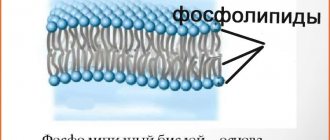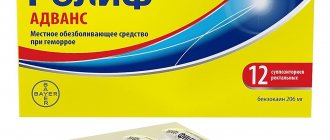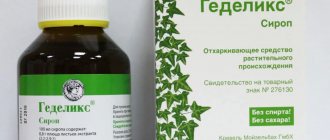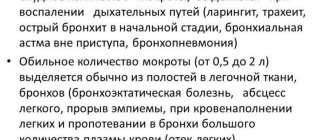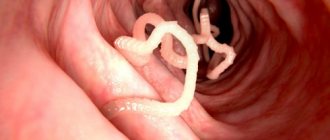A variety of anti-inflammatory drugs are prescribed to relieve inflammation in areas of damage. Medicines for this purpose are especially important for diseases that are characterized by a chronic progressive inflammatory process, which can lead to disability.
Treating cold symptoms
However, the symptoms of a cold themselves are difficult to bear; they can knock us out of the normal rhythm of life and put us to bed for several days.
It should be immediately noted that more expensive fast-acting cold medicines usually have a combined effect; they relieve several symptoms at once, for example: they reduce fever, relieve nasal congestion and a sore throat. Here you need to be careful, since you need to bring down the temperature that is above 38.5. Up to this point, the temperature helps to actively destroy viruses and, by knocking it down, you will get sick longer.
Therefore, it is better to take medications that treat individual symptoms. At the same time, tablets that relieve individual symptoms are cheaper cold medicines.
Fervex is considered one of the most inexpensive and effective combination drugs; tablets and powders (which often need to be dissolved in hot water) of this series also include: Coldrex, Anitigrippin, Viferon, Theraflu. However, today the pharmaceutical industry produces a lot of drugs of this series, they vary significantly in price, but these cold tablets cannot be considered cheap.
Relieving the heat
When body temperature rises above 38.5, paracetamol is usually used. It is the basis of almost all cold medicines (Panadol, Coldrex, Fervex) and therefore, buying Paracetamol tablets for 6-20 rubles / 10 pcs. you will get the same treatment effectiveness as if you bought an expensive drug.
Another effective cure for fever is aspirin. In the form of regular tablets (Acetyl salicylic acid) it costs from 17 rubles. Expensive Aspirin-Upasa tablets have the same acetylsalicylic acid in their base, but they cost an order of magnitude more and both relieve fever equally.
Some people start taking antibiotics at the first symptoms of a cold. This is fundamentally wrong. Since antibiotics do not act against viruses, and themselves have many side effects. By using antibacterial drugs without a doctor’s prescription, you can worsen your condition, since gastrointestinal disorders or other unpleasant side effects will be added to the symptoms of a cold.
If the temperature is high (over 38.5), Nurofen is prescribed; its more budget-friendly analogue is Ibuprofen (up to 50 rubles/100 capsules).
Treating the throat
To treat a sore throat, tablets, lozenges, lozenges with an antiseptic effect, and irrigation sprays are used.
The most budget-friendly analogues of expensive cold medicines for the throat would be:
Lozenges: Strepsils (40-600 RUR), Septolete (70–80 RUR), Trisils (15–20 RUR) Sprays: Orasept (up to 160 RUR), Hepilor (up to 80 RUR), Dekasan (up to 200 RUR. ). Gargle with a solution of salt (sea or table) and soda (1 teaspoon per glass of water), it’s almost free, but the effect is the same.
Removing a runny nose
Nasal congestion is usually treated with vasoconstrictor drops and antihistamines. It is very useful to rinse your nose with sea or table salt.
Nasal drops with a vasoconstrictor effect (adrenergic agonists) will be popular; this is an effective nasal medicine against influenza and colds, inexpensive among them are domestic drugs: Naphthyzin, Naphazolin, Nazol, Galazolin, Sanorin (25–40 ppm). Foreign-made drugs will be more expensive: Vibrocil (from 235 rubles), Ximelin (from 145 rubles), Otrivin (from 135 rubles).
For a runny nose, drops based on plant oils are also used: Kalanchoe, cloves, thuja, sea buckthorn and others. So, Pinosol, Eucasept, Pinovit, Vitaon, Sinusan are usually prescribed. These drops are often prescribed to pregnant women and children. However, such drugs are quite expensive: from 140 to 800 rubles. for 15 ml. They can be replaced with budget essential oils.
Stop the cough
Coughs for colds and flu should only be treated if they cause discomfort. In other cases, antiseptic lozenges and lozenges are enough to stop it.
In some cases, when the cough is barking, leading to vomiting, antitussive drugs are prescribed. However, they cannot be used during simultaneous treatment with mucolytics.
The most budget-friendly drug for children will be Bronchomishka (from 80 rubles/10 tablets), other drugs are Sinecod (from 270 rubles), Codelac (from 180 rubles), ACC (from 200 rubles), Stoptusin (from 200 rubles. R.).
The use of these tablets and syrups should be discussed with your doctor.
Cheap analogues of expensive cold medicines are given in the following table.
When and how to drink: general rules of administration
For different antibiotics, the dosage regimen and duration of therapy may vary, but several general rules of administration remain unchanged:
- You cannot choose medications yourself, and it is also not recommended to change the dosage without the approval of your doctor.
- To maintain the level of intestinal microflora at the required level, taking these drugs must be combined with taking probiotics. For the same purpose, it is necessary to consume more fermented milk products during the course of treatment.
- Regardless of how quickly your health improves, the course of treatment prescribed by your doctor cannot be reduced, even if the symptoms of the disease disappear after a few days. Symptoms may disappear temporarily, but the infection itself will still be present in the body (albeit in small quantities). And if it is not completely destroyed, the bacteria will multiply again, but will already have resistance to the medicine used. In this case, there will be a need to select a new type of antibiotic.
- In the initial stages of the disease, it can be difficult to immediately select the necessary drug. Therefore, if during the first two or three days there is no even slight improvement, the drug should be replaced with an analogue or with a drug from a different group.
- Such drugs may not be combined with each other or with other drugs. Therefore, all information about drug interactions of such drugs must first be clarified with your doctor or found in the instructions.
"Arbidol"
"Arbidol" is an antiviral drug that increases the body's resistance to viruses, strengthening the immune system. Used to treat influenza and colds in mild forms. Reduces the risk of complications of viral infections and exacerbation of chronic bacterial diseases. When used, it reduces intoxication and the duration of the disease.
The drug is produced in tablets and capsules.
Should be taken orally before meals. The dosage varies depending on age, weight and disease.
Contraindicated in people who have heart, liver or kidney disease or hypersensitivity to the drug. Do not give to children under three years of age.
Medicines for colds - list
Each case is unique, so doctors often find it difficult to name effective pills for colds. Cold medications significantly improve the patient’s well-being and normalize the temperature. The therapeutic effect after taking the medication occurs after a few hours. However, to consolidate it, a course of treatment is required.
Anti-inflammatory tablets for colds
Anti-inflammatory drugs for colds are among the first on the list of medical prescriptions. These medications do an excellent job of treating the main symptoms of ARVI:
- lower body temperature;
- eliminate weakness, headache;
- relieve inflammation and aches in joints.
Non-steroidal anti-inflammatory tablets for colds are sold from pharmacies without a doctor's prescription, which partly also explains their popularity among patients
However, they must be used with caution, as additional treatments or for quick relief of symptoms and relief of well-being.
Among the well-known drugs in this group:
- Efferalgan;
- Panadol;
- Nurofen.
Antiviral tablets for colds
Antiviral tablets are often used to treat colds. In most cases, the disease is provoked by viruses, so the drugs act directly on the cause of the disease. According to the mechanism of action, antiviral agents can be divided into:
- Those that directly affect the structure of the virus and disrupt its vital activity (etiotropic drugs).
- Having an effect on the human immune system, increasing the resistance of the body as a whole (immune modulating).
The first group of drugs acts directly on the virus by blocking its enzymatic system or preventing the pathogen from entering the cell. These antiviral drugs are directly recommended for acute respiratory viral infections.
Among the well-known drugs are the following tablets for flu and colds:
- Tamiflu;
- Nomides;
- Influcein;
- Relenza;
- Midantan;
- Remantadine.
Antibiotic tablets for colds
Antibacterial tablets for colds are used in cases where it is established that the causative agent is a pathological microorganism. Establishing its type helps to choose the right medicine and prescribe effective treatment. All prescriptions are made exclusively by a doctor. The most common of the drugs in this group is Azithromycin. It is popularly known as three tablets for colds, an antibiotic.
The drug belongs to macrolides. It blocks the production of proteins by bacteria that are important for their life. As a result, the growth and development of the pathogen is sharply suppressed. The drug acts bacteriostatically, and in large dosages it is bactericidal.
Other antibiotics commonly used for colds include:
- Cefaclor;
- Cefamandole;
- Unidox Solutab;
- Cefuroxime;
- Rulid;
- Amoxiclav;
- Cefroxitin;
- Lincomycin;
- Cefoperazone;
- Ceftazidime;
- Cefotax.
Vitamins for colds
Vitamin preparations are unable to influence the cause of the disease, but can be used as auxiliary tablets for ARVI. Modern vitamin complexes quickly increase the body's resistance to pathogenic agents. As a result of their use, there is an accelerated development of an immune response to the pathogen. The content of ascorbic acid in vitamins is of great importance. This substance is a strong antioxidant that has a beneficial effect on metabolic processes in the body.
An example of vitamin preparations that help cope with ARVI are:
- Multi-tabs Immuno plus - contains essential B vitamins, vitamin A, C and D, folic acid.
- Centrum is a multivitamin complex containing 25 components.
- Immunal is a special complex for maintaining the body’s defenses, created on the basis of Echinacea purpurea.
Contraindications for use
The main limitation of the use of nasal drops is individual intolerance to any component. Also, the treatment course may be interrupted if the bacterial microflora becomes resistant to the drug.
There are the following situations when antibacterial nasal drops are contraindicated:
- An abrupt increase in blood pressure.
- Severe forms of cardiac pathologies.
- Low blood clotting.
- Advanced forms of thyroid disease.
- The period when a woman is carrying a child (especially the first trimester of pregnancy), as well as when the baby is breastfed.
- Children under 6 months.
"Kagocel"
"Kagocel" is an antiviral drug that has an immunostimulating effect. Most often, the drug is used to treat influenza. Stimulates the body's production of its own proteins, which have a strong antiviral effect.
"Kagocel" is taken orally, swallowed with plenty of liquid. It is recommended not to chew or crush the tablets.
Do not use in patients with hypersensitivity to the drug or hereditary galactose intolerance. Patients with impaired absorption of glucose-galactose. Contraindicated for women during pregnancy and breastfeeding. Do not give to children under 6 years of age.
Systemic antibacterial agents
For sore throat, swollen lymph nodes, and persistent fever, preference is given to the following groups of antibiotics:
| Combined penicillins |
|
| Macrolides, azalides |
|
| Cephalosporins |
|
| Fluoroquinolones |
|
When selecting a suitable medicine, adhere to the following criteria:
- The drug must have a bactericidal effect.
- Tablets or capsules are not inactivated when exposed to enzymes secreted by pathogenic microorganisms.
- The active substance is quickly absorbed, has a selective effect and accumulates only at the site of the lesion.
- The drug has a prolonged effect.
- The likelihood of toxic effects and the development of adverse reactions is minimal.
The selection of a suitable, effective and safe medicine can only be carried out by a therapist or otolaryngologist after receiving the results of a smear to examine the microflora.
Until the results are obtained, the doctor can decide to use a medicine with the widest possible spectrum of action.
Cold medicines for nursing and pregnant women
In order for the treatment to bring results and not harm the fetus, you need to call a doctor who will select symptomatic medications.
As prescribed by a specialist, it is allowed to use such remedies for sore throats as hexoral and inhalipt. These medications do not affect the development of the fetus and have a pronounced antiseptic effect. Thanks to this, it is possible to cope with inflammation in the mucous membrane of the throat.
Coughing during pregnancy is a serious danger, because this symptom can even lead to miscarriage. In addition, it disrupts oxygen access to the baby. During pregnancy, you are allowed to take medications such as mucaltin and bioparox.
The second remedy has an antibacterial effect and is used as prescribed by a doctor. It almost never enters the bloodstream, so it has no effect on the child.
To treat dry cough in the early stages, it is allowed to use stodal. synecode. In the 2-3 trimester it is permissible to use libexin and falimint. Therapy for wet cough can be carried out using herbion, tussin.
A runny nose also significantly complicates the lives of mother and child, because breathing problems provoke oxygen deficiency. During this period, vasoconstrictor substances such as naphthyzin and nazol should not be used.
To cope with a runny nose during pregnancy, it is allowed to use Nazivin and Pinosol. It is useful to rinse the nose with aquamaris and saline solutions. The listed products eliminate the inflammatory process, have a moisturizing effect and have pronounced antimicrobial characteristics.
Folk remedies for washing include the following infusions: add a little iodine and salt to half a glass of water. Place 2 drops into the nasal passages three to four times a day. It is also allowed to add a little salt to 1 liter of water - about a teaspoon.
When the temperature rises above 38 degrees, antipyretics are used. During pregnancy, medications containing paracetamol are allowed. The same remedy is useful for pain in the head and muscles. Aspirin and medications that contain it should not be taken during pregnancy. Traditional methods will help you cope with the temperature - for example, wet wipes.
Unique nasal drops of different pharmacological groups
When inflammatory processes occur in the upper respiratory tract and paranasal sinuses, medicinal drops are used for instillation into the nasal passages, which help to liquefy the thick secretion in the nasal passages and bronchial lumen.
In this case the following applies:
- Rinofluimucil. Produced by the Spanish pharmaceutical concern Zambon. The therapeutic effect is based on the combination of two main ingredients Tuaminoheptane sulfate and Acetylcysteine. The first has a pronounced vasoconstrictor anti-inflammatory effect, the second ensures the dilution of mucous secretions and relieves nasal congestion, enhances the removal of toxins from the body. This combination of therapeutic effects allows its use in therapy when inflammation of the paranasal sinuses is diagnosed (sinusitis, sinusitis or frontal sinusitis). It is not recommended to use for thyrotoxicosis and increased intraocular pressure (glaucoma). Sometimes it can cause skin allergies such as urticaria. Serious consequences include the development of Quincke's edema. In children, it is intended to be used after reaching three years of age. Pregnant women are prescribed in the minimum pediatric dosage under medical supervision.
- Derinat. The therapeutic effect is based on the content of the chemical component sodium deoxyribonucleate in nasal drops. It is used in cases where the disease of the nasopharynx and respiratory tract has acquired a sluggish form due to exposure to bacterial and viral pathogens. Patients note its positive effect when treating sinusitis, frontal sinusitis or a prolonged runny nose. Nasal drops are used with success in the treatment of tonsillitis, bronchitis and tracheobronchitis. Due to its low toxicity, it can be used in any trimester of pregnancy and in children in the first year of life. Contraindicated if one of the components is an allergen for the body of an adult or a small patient. The duration of therapy should not exceed two weeks.
Causes of colds
If a cold is considered in the narrow context of ARVI, then the etiology of its appearance is a virus, and other options can be excluded. Since the infection is activated and spreads only in weak cells that do not provide the necessary resistance, only indirect causes can be considered.
So, the following can be considered as factors that influence the frequency of relapses of colds:
Bronchitis and tracheitis: symptoms and treatment Colds on the face. What ointments are most effective in treating herpes? Antipyretics for high fever in adults How and how to treat a severe cough in a child
- Hypothermia. This factor can contribute to the disease, both in winter and in summer. Often, a slight draft, cold ice cream or wet feet are enough to feel the first symptoms of a cold within a few hours. This phenomenon is explained by the inability of blood vessels to quickly respond and adapt to temperature changes; this provokes the appearance of inflammatory foci in the throat, runny nose, etc.
- Chronic diseases in acute form reduce immunity and disrupt the optimal state of the body. Doctors very often encounter cases where an ulcer or diabetes is the root cause of the frequent occurrence of colds.
- Stress is also considered a serious provocateur of persistent colds. The majority of people treat this fact as not worthy of attention; this is a big mistake. Nervous stress is a negative factor for the immune system even more than hypothermia. Due to constant stress, the nervous system of the human body is on edge. Since it is impossible to eliminate the impact of stress, you need to learn to control your emotional state, correcting it with the help of natural sedatives.
These negative effects are reflected in the body and cause bacteria to become activated and begin to attack weakened cells. The weaker the immune system, the fewer resources there are to suppress viruses.
Medicines to relieve a runny nose
Often when you have a cold, a person develops a runny nose, accompanied by nasal congestion. To eliminate this unpleasant symptom, doctors prescribe medications such as Nazivin and Sanorin. Such drugs cost about 200 rubles. You can replace them with “Naphthyzin”, “Galazolin”, which will cost you no more than 50 rubles. They can be used for no more than 3-5 days, like expensive analogues.
Doctors can prescribe Miramistin solution as an antiseptic. You can buy it at a pharmacy for 200-350 rubles. An analogue of this medication will be “Chlorhexidine”, which costs no more than 50 rubles. An expensive nasal antiseptic based on silver ions is Sialor (250-300 rubles). Without any fear, it can be replaced with Protargol solution for 60-80 rubles.
Replace “Pinosol” drops (200 rubles) with the drug “Pinovit” (100 rubles). These medicines are made from plant extracts and oils. Their composition is absolutely identical, only the manufacturer differs.
Classification
How are NSAIDs classified and what are they? Based on their chemical origin, these drugs come in acidic and non-acidic derivatives.
Acidic NSAIDs:
- Oxicams – piroxicam, meloxicam;
- NSAIDs based on indoacetic acid - indomethacin, etodolac, sulindac;
- Based on propionic acid – ketoprofen, ibuprofen;
- Salicipates (based on salicylic acid) – aspirin, diflunisal;
- Phenylacetic acid derivatives – diclofenac, aceclofenac;
- Pyrazolidines (pyrazolonic acid) – analgin, metamizole sodium, phenylbutazone.
Non-acid NSAIDs:
- Alcanons;
- Sulfonamide derivatives.
Also, non-steroidal drugs differ in type and intensity of effect - analgesic, anti-inflammatory, combined.
Signs and symptoms of diseases
Flu and colds are similar diseases. They have similar symptoms, and there are characteristic signs for each pathology separately.
The main manifestations of colds:
- Strong headache;
- increased secretion of mucus from the nasal cavity;
- redness and hyperemia of the olfactory organ;
- prostration;
- mild muscle pain;
If the immune system cannot cope with microorganisms, then they join:
- cough;
- low-grade fever (may or may not be present);
- hyperemia of the nasal cavity;
- redness of the eyes;
- muscle pain;
- involuntary separation of tears from the eyes.
Signs of flu:
- very fast start;
- a sharp and very high increase in temperature;
- severe weakness;
- very pronounced pain in the musculoskeletal system;
- migraine headache;
- severe manifestations of allergic reactions;
- hyperthermia is not controlled by drugs;
- mucous discharge from the nasal cavity appears 2-3 days after infection;
- pain in the heart area due to the negative effect of the influenza virus on the vascular system;
- tachycardia.
Side effects
Long-term use of anti-inflammatory drugs in high doses can cause:
- Disruption of the nervous system - mood changes, disorientation, dizziness, apathy, tinnitus, headache, blurred vision;
- Changes in the functioning of the heart and blood vessels - palpitations, increased blood pressure, swelling.
- Gastritis, ulcers, perforation, gastrointestinal bleeding, dyspeptic disorders, changes in liver function with increased activity of liver enzymes;
- Allergic reactions – angioedema, erythema, urticaria, bullous dermatitis, bronchial asthma, anaphylactic shock;
- Kidney failure, urinary disorders.
What can be replaced?
Remember! Antibiotics do not have complete substitutes for pharmacological action, but some medicinal plants used in traditional medicine recipes have the same antibacterial effect:
- A tablespoon of fresh juniper berries is crushed and ground and poured with a glass of boiling water. This remedy is drunk hot instead of tea after each meal, a third of a glass.
- A tablespoon of freshly picked pine buds is brewed in a glass of water and infused overnight. In the morning, you can start drinking a third of a glass half an hour before meals.
- Instead of pine buds, you can use the same amount of dried plantain leaf. But it should not be infused, but simmered over low heat for forty minutes, after which it should be used in the same way as the previous remedy.
- A teaspoon of celandine is brewed in a glass of boiling water and, after cooling, the product is drunk in a third of a glass after meals.
Carefully! Traditional medicines can have a negative effect if the dosage is incorrect or if you are allergic to the ingredients.
Therefore, before using them, it is necessary to consult a doctor, and during treatment, strictly adhere to the dosage and at the first signs of allergic reactions or deterioration in health, cancel such treatment.
Bacteriophages
Another alternative to antibiotics are selective bacteriophage viruses.
Such cultures are sold in the form of nasal drops, solutions for internal use, tablets and suppositories.
When bacteriophages enter the body, they invade the cells of pathogenic microflora.
And just as pathogenic viruses spread in the cells of the body, bacteriophages begin to destroy pathogenic microorganisms from the inside.
Such drugs are much less dangerous to humans than antibiotics.
But they cannot completely replace antibacterial agents, since they are specific agents of narrowly targeted action and destroy a specific culture: streptococci, staphylococci or other microorganisms.
But against their different strains, bacteriophages will be useless.
Ketoprofen
In addition to the drugs listed above, the group of drugs of the first type, non-selective NSAIDs, i.e. COX-1, includes a drug such as ketoprofen. In terms of the strength of its action, it is close to ibuprofen, and is available in the form of tablets, gel, aerosol, cream, solutions for external use and for injection, rectal suppositories (suppositories).
You can buy this product under the trade names Artrum, Febrofid, Ketonal, OKI, Artrosilen, Fastum, Bystrum, Flamax, Flexen and others.
Definition of diseases
A cold is a whole group of acute respiratory infections that manifest themselves as catarrhal damage to the mucous membranes of the upper respiratory tract. The disease is characterized by a wide symptomatic picture and high prevalence, rightfully occupying a leading position among infectious diseases. All over the world, people suffer from colds every year, often more than once.
The difficult situation with the frequency of cold outbreaks is associated with the increased susceptibility of the human body to microorganisms that are pathogens. Viruses penetrate the body and become active at the cellular level, penetrating DNA and changing its structure. Of course, people themselves are to blame for the occurrence of colds, since they are rather negligent in taking preventive measures and therapy. It is no secret that most people do not consider a cold to be a serious illness and endure it on their feet, ignoring the recommended bed rest.
The most common method of transmission of infection today remains airborne. Being around someone who is infected increases the chance of illness spread through coughing and sneezing.
Causes
There are a number of reasons that provoke disease in the population, especially during seasonal infections:
- Hypothermia. Any hypothermia of the body provokes a serious decrease in human immunity. Eating cold food or drinking ice-cold drinks should not be taken lightly.
- Stress. Most people tend to consider stress as not a serious factor, but frequent experiences, frustrations, and stress can cause disruption of the immune system. They provoke general weakness, headache, muscle pain and dizziness.
- Exacerbation of chronic diseases. Allergies, peptic ulcers, cardiovascular failure - any of these diseases in a chronic form during an exacerbation can sharply reduce the body's protective functions. After all, it is difficult for the immune system to fight illnesses on all fronts at the same time.
- Poisoning, gastritis and any disruptions in the gastrointestinal tract. This cause of colds especially concerns lovers of junk food and alcoholic beverages. By overloading the gastrointestinal tract with alcohol, fatty and sweet foods, people weaken it.
- Lack of hygiene. Basic rules of hygiene were not invented in vain. By washing foods, cleaning your mouth, and sanitizing your hands, you can prevent infection from entering the body.
- Contact with an infected person. People are dismissive of isolating a patient, although viruses quite quickly enter a healthy body through the air.
It is necessary to take a set of measures to protect the body from viruses so that the immune system is at its best. In this case, neither flu nor colds will ever affect your health, especially during the season of infection.
When should adults take antibiotics when they have a cold?
It makes sense for adults to use antibiotics for serious and complicated diseases.
It is worth noting! In addition to the therapeutic effect, such drugs also have a negative effect on the body (for example, the destruction of beneficial microflora in the gastrointestinal tract).
Therefore, it is advisable to use antibiotics if the risks of developing complications of the disease are higher than the possible harm to the patient.
A doctor may prescribe antibiotics in the following cases:
- the patient has a severe runny nose with a large amount of purulent mucous discharge that does not stop within 8-10 days;
- purulent complications develop in the form of sinusitis, laryngotracheitis, lymphadenitis and other diseases of the respiratory system with the release of pus;
- signs of unstable immune system functioning appear. The temperature does not go down for a long time with antipyretics, but at the same time it is low and does not increase or decrease on its own. Against the background of a cold, other pathologies appear or chronic diseases recur;
- A productive cough develops, in which large quantities of green-yellow sputum are released.
Types of PVA
All PVAs have a nonspecific effect - the therapeutic effect is manifested in the inflammatory process of any origin, regardless of the location.
PVA are divided into 3 groups:
- slow acting, used for basic therapy;
- non-steroidal PVP;
- steroid PVA.
Anti-inflammatory drugs are the most used drugs in the world, since people purchase them not only with a doctor’s prescription, but also for self-medication.
Symptomatic treatments for colds
The most common signs of a cold are headache, runny nose, fever, cough, and sore throat. The choice of which tablets to take for a cold depends on the main symptom of acute respiratory disease (ARI).
If the most pronounced symptom of acute respiratory infections is high fever, antipyretic tablets are needed.
For severe muscle pain or headaches, painkillers help, and vasoconstrictors and antihistamines help with a runny nose.
Painkillers
Solpadeine helps with headaches, acts quickly thanks to codeine, paracetamol, caffeine, which are part of it.
Panadeine is characterized by a similar composition and action. Panadeine tablets contain codeine, paracetamol, quickly help with headaches and lower fever.
Analgin helps with pain and feverish conditions. These cold tablets are not prescribed to children. Amidopyrine is used for headaches, reduces fever, and has an anti-inflammatory effect.
Antihistamines
Antihistamines reduce swelling, relieve itching and runny nose.
For colds, Pheniramine, Promethazine, and Chlorphenamine tablets are prescribed.
Antipyretic medications
A well-known antipyretic is aspirin (acetylsalicylic acid). The drug is approved for children, but has a number of side effects and is taken under the supervision of a doctor.
Aspirin – Oops – Effervescent cold tablets contain aspirin and vitamin C. The tablet is dissolved in water. Children are prescribed after 4 years.
Alka-Seltzer effervescent tablets contain, in addition to aspirin, soda and citric acid. The drug is approved for children over 3 years of age.
Vasoconstrictors
Restoring free breathing and reducing secretions is achieved by using vasoconstrictors - phenylephrine, Nazivin, Otrivin.
Sinuforte aerosol and sprays: Pinosol and Xymelin help with a runny nose. Vibrocil and Pinosol nasal drops help a lot.
Read more about anti-runny nose sprays in the article Best anti-runny nose sprays.
Ointments Doctor Mom, Evamenol, Pinosol reduce runny nose.
Combined action cold tablets
Most symptomatic treatment drugs have a combined effect, eliminating several symptoms at once. These drugs include paracetamol and nurofen.
Nurofen tablets have an anti-inflammatory effect, reduce pain, and reduce fever during colds.
Symptomatic drugs include Theraflu, Codrex, Fervex.
Fervex has the fewest contraindications. The drug is produced in powders and lozenges.
Anti-inflammatory tablets help with colds:
efferalgan; Panadol.
Panadol contains paracetamol and is not recommended to be taken with other medications containing this compound. Panadol is produced in the form of a pleasant-tasting syrup for children, tablets, and suppositories for adults.
Efferalgan also contains paracetamol, which effectively fights cold symptoms, reduces fever, and improves well-being.
Perhaps you were looking for something to treat a cough, for more details in the article Cough Medicines.
Chinese tablets
Combination drugs with symptomatic action include granules of the Chinese drug "Ganmaolin Kaley" 999. Each tablet of the Chinese cold medicine contains paracetamol, caffeine and plant extracts.
The composition of the Chinese remedy includes string, peppermint oil, evodia root, and Indian chrysanthemum.
The product has an antipyretic, analgesic effect, reduces congestion, and helps with sore throat.
Symptomatic treatment cannot act on the virus that causes colds and flu. Antiviral drugs help suppress the effect of the virus; which tablets to take for a cold also depends on the age of the patient.
"Amiksin"
"Amiksin" is a drug that has an antiviral effect and effectively destroys bacteria and viruses that cause a cold. Stimulates the growth of stem cells. Surpasses other means in terms of harmlessness and the resulting effect.
The product is consumed after meals. The duration of drug treatment depends on the nature and complexity of the disease.
The drug is contraindicated for pregnant and lactating women, children under 7 years of age, and patients who are hypersensitive to the ingredients of the drug.
